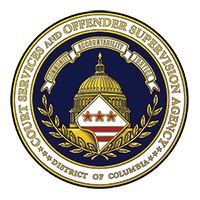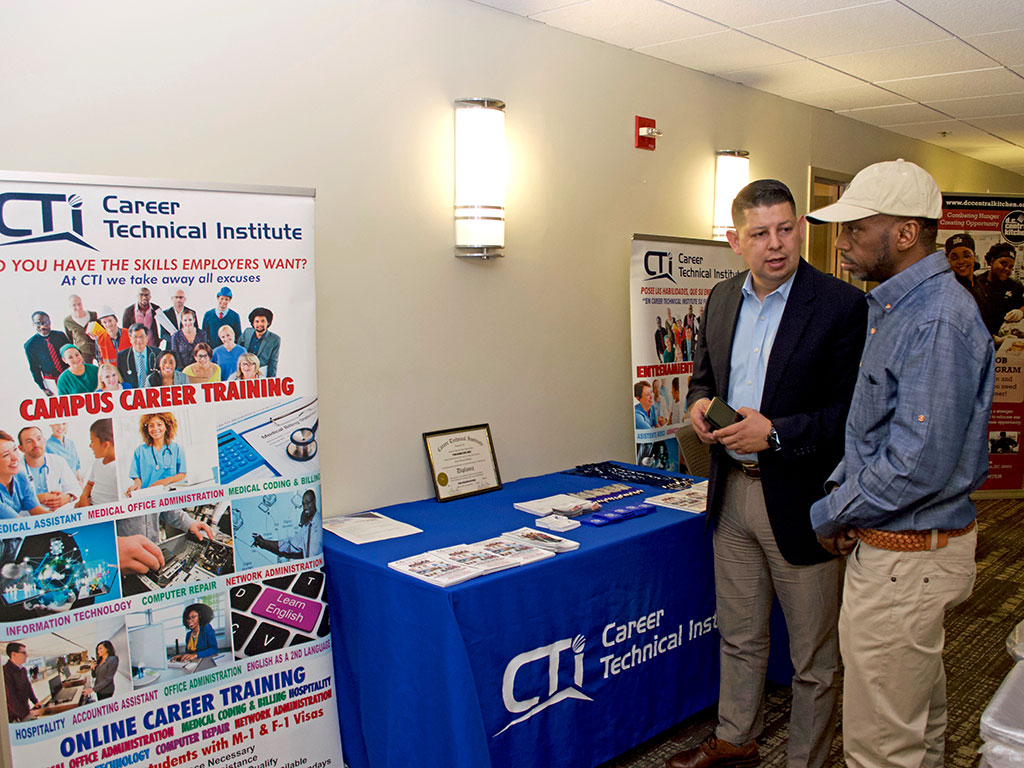In recognition of April as Second Chance Month, CSOSA invited leaders and representatives of business and training programs to Second Chance at Work – an event drawing attention to the obstacles justice-involved individuals face when entering the workforce and highlighting the work that CSOSA and our partners do to prepare people under supervision for the workplace.
President Donald J. Trump declared April Second Chance Month to “draw attention to the challenges that former inmates face and the steps we can take to ensure they have the opportunity to become contributing members of society.” For too many returning citizens, the obstacles imposed by a criminal history compound their employment struggles. Beyond highlighting these challenges and celebrating those who have successfully reintegrated into the community, Second Chance Month provided an opportunity to express sincere gratitude to individuals and organizations that have provided the support, resources, and jobs that facilitated their success.
“Although our mandate is to provide community supervision, we have long recognized that people are more likely to successfully complete supervision when certain stabilization needs are met,” said CSOSA Director Richard S. Tischner. “Steady and gainful employment is one of the top needs. Unfortunately, about half of the employable people under our supervision are unemployed.”
During the Conversations with the CEAC segment of the event, guests toured one of CSOSA’s Community Engagement and Achievement Centers (CEACs) and learned how our staff prepare clients for entry into the workforce directly or provide skills acquisition through completion of a vocational training program. Guests also heard from CSOSA partners including Building Futures, DC Central Kitchen, the EZ Street Music Industry Academy, and the Hope Project about the value of giving a second chance.
The second part of the program — Second Chance Successes – featured successful CSOSA clients who have obtained employment or occupational certifications, achieved stability, and are compliant with the conditions of their supervision, sharing the stories of their struggles and achievements in their own words. The triumphs of these clients are not only a testament to their hard work and determination, but they also demonstrate what can be accomplished through the collaborative partnerships established by the CEAC.
Guests heard remarks from Congressman Danny K. Davis, United States Representative from Illinois’s Seventh Congressional District and co-sponsor of the Second Chance Act; Ahnna Kim Smith, Executive Director of the Workforce Investment Council of the District of Columbia; Elissa Silverman, At-Large DC Councilmember and Chair of the Committee on Labor and Workforce Development; and Antwanye Ford, Board Chair of the Workforce Investment Council of the District of Columbia.
Finally, during What’s in it for My Business?, representatives from the United States Department of Labor’s Employment and Training Administration and the District of Columbia Department of Employment Services educated guests about the benefits of hiring returning citizens, including funding opportunities, bonding, and the Workforce Opportunity Tax Credit.
Our work does not stop because Second Chance Month is over. We have asked each of the employers that participated in the event to commit to hiring one person who is or has been under CSOSA supervision. If you are an employer or training program interested in partnering with CSOSA, contact Michael Bonds, Intergovernmental and Community Affairs Specialist, at Michael.Bonds@csosa.gov or (202) 220-5458.




